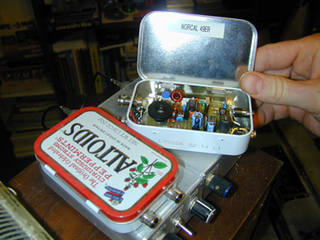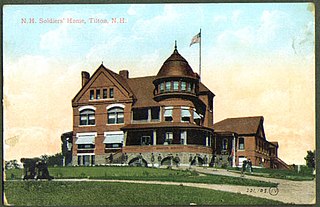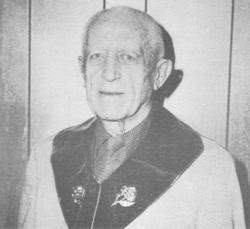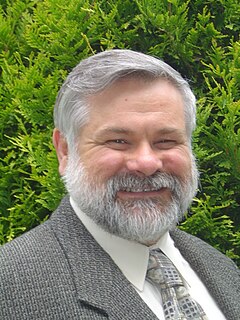Related Research Articles

A bulletin board system or BBS is a computer server running software that allows users to connect to the system using a terminal program. Once logged in, the user can perform functions such as uploading and downloading software and data, reading news and bulletins, and exchanging messages with other users through public message boards and sometimes via direct chatting. In the early 1980s, message networks such as FidoNet were developed to provide services such as NetMail, which is similar to internet-based email.

Cruising by boat is an activity that involves living for extended time on a vessel while traveling from place to place for pleasure. Cruising generally refers to trips of a few days or more, and can extend to round-the-world voyages.

In digital radio, packet radio is the application of packet switching techniques to digital radio communications. Packet radio uses a packet switching protocol as opposed to circuit switching or message switching protocols to transmit digital data via a radio communication link. Packet radio can be differentiated from other digital radio switching schemes by the following attributes:

In amateur radio, QRP operation refers to transmitting at reduced power while attempting to maximize one's effective range. QRP operation is a specialized pursuit within the hobby that was first popularized in the early 1920s. QRP operators generally limit their transmitted RF output power to 5 Watts or less regardless of mode be it CW operation or SSB operation.
The Open Letter to Hobbyists is a 1976 open letter written by Bill Gates, the co-founder of Microsoft, to early personal computer hobbyists, in which Gates expresses dismay at the rampant software piracy taking place in the hobbyist community, particularly with regard to his company's software.

Avinash C. Kak is a professor of Electrical and Computer Engineering at Purdue University who has conducted pioneering research in several areas of information processing. His most noteworthy contributions deal with algorithms, languages, and systems related to networks, robotics, and computer vision. Born in Srinagar, Kashmir, he did his Bachelors in BE at University of Madras and Phd in Indian Institute of Technology Delhi. He joined the faculty of Purdue University in 1971.

An old soldiers' home is a military veterans' retirement home, nursing home, or hospital, or sometimes an institution for the care of the widows and orphans of a nation's soldiers, sailors, and marines, etc.

Popular Electronics was an American magazine published by John August Media, LLC, and hosted at TechnicaCuriosa.com. The magazine was started by Ziff-Davis Publishing Company in October 1954 for electronics hobbyists and experimenters. It soon became the "World's Largest-Selling Electronics Magazine". In April 1957 Ziff-Davis reported an average net paid circulation of 240,151 copies. Popular Electronics was published until October 1982 when, in November 1982, Ziff-Davis launched a successor magazine, Computers & Electronics. During its last year of publication by Ziff-Davis, Popular Electronics reported an average monthly circulation of 409,344 copies. The title was sold to Gernsback Publications, and their Hands-On Electronics magazine was renamed to Popular Electronics in February 1989, and published until December 1999. The Popular Electronics trademark was then acquired by John August Media, who revived the magazine, the digital edition of which is hosted at TechnicaCuriosa.com, along with sister titles, Mechanix Illustrated and Popular Astronomy.
Edward Grady "Ed" Coffman Jr. is a computer scientist. He began his career as a systems programmer at the System Development Corporation (SDC) during the period 1958–65. His PhD in engineering at UCLA in 1966 was followed by a series of positions at Princeton University (1966–69), The Pennsylvania State University (1970–76), Columbia University (1976–77), and the University of California, Santa Barbara (1977–79). In 1979, he joined the Mathematics Center at Bell Laboratories where he stayed until his retirement as a Distinguished Member of Technical Staff 20 years later. After a one-year stint at the New Jersey Institute of Technology, he returned to Columbia University in 2000 with appointments in Computer Science, Electrical Engineering, and Industrial Engineering and Operations Research. He retired from teaching in 2008 and is now a Professor Emeritus still engaged in research and professional activities.
Arthur R. Butz is an associate professor of electrical engineering at Northwestern University and a Holocaust denier, best known as the author of The Hoax of the Twentieth Century. He achieved tenure in 1974 and currently teaches classes in control system theory and digital signal processing.

The TV Typewriter is a video terminal that could display two pages of 16 lines of 32 upper case characters on a standard television set. The design, by Don Lancaster, appeared on the cover of Radio-Electronics magazine in September 1973.

Mark Montano is an American interior designer, artist, writer, and TV personality.
J. L. Chestnut, Jr. was an author, attorney, and a figure in the Civil Rights Movement. He was the first African-American attorney in Selma, Alabama, and the author of the 1991 autobiographical book, Black in Selma: The Uncommon Life of J.L. Chestnut, Jr., which chronicles the history of the Selma Voting Rights Movement, including the 1965 Selma to Montgomery marches and Bloody Sunday.

Evelyn Martin Lansdowne Beale FRS was an applied mathematician and statistician who was one of the pioneers of mathematical programming.

Harold Van Buren Voorhis was a chemist, noted Masonic author, and executive at Macoy Publishers and Masonic Supply Company.

Robert Michael Slade, also known as Robert M. Slade and Rob Slade, is a Canadian information security consultant, researcher and instructor. He is the author of Robert Slade's Guide to Computer Viruses, Software Forensics, Dictionary of Information Security and co-author of Viruses Revealed. Slade is the author of thousands of technical book reviews, today published on the techbooks mailing list and in the RISKS Digest, and archived in his Internet Review Project. An expert on computer viruses and malware, he is also the Mr. Slade of "Mr. Slade's lists".
Kyu Ho Youm is a professor and the Jonathan Marshall First Amendment Chair at the University of Oregon School of Journalism and Communication.

John Mathew Cioffi is an American electrical engineer, educator and inventor who has made contributions in telecommunication system theory, specifically in coding theory and information theory. Best known as "the father of DSL," Cioffi's pioneering research was instrumental in making digital subscriber line (DSL) technology practical and has led to over 400 publications and more than 100 pending or issued patents, many of which are licensed.

Albert Y. Zomaya is currently the Chair Professor of High Performance Computing & Networking and Australian Research Council Professorial Fellow in the School of Information Technologies, The University of Sydney. He is also the Director of the Centre for Distributed and High Performance Computing. He is currently the Editor in Chief of IEEE Transactions on Sustainable Computing and Springer's Scalable Computing and Communications. He was past Editor in Chief of the IEEE Transactions on Computers.
References
- ↑ Google Books list: Cass Lewart https://books.google.com/books?ct=result&q=Cass+Lewart
- ↑ InformIT website author profile http://www.informit.com/authors/bio.aspx?a=e9f9c497-3af9-4409-ab93-cf637758cec1
- ↑ Google Books list Cass Lewart https://books.google.com/books?ct=result&q=Cass+Lewart
- ↑ Review of The Ultimate Modem Handbook by Robert Slade (Cass R. Lewart, 1998, 0-13-849415-) http://victoria.tc.ca/int-grps/books/techrev/bkulmdhb.rvw
- ↑ Hobbyist of the Year List, Amateur Computer Group of New Jersey website http://www.acgnj.org/hoty/hoty.html Archived 2011-07-24 at the Wayback Machine
- ↑ Hobbyist of the Year List, Amateur Computer Group of New Jersey website http://www.acgnj.org/hoty/hoty.html Archived 2011-07-24 at the Wayback Machine
- ↑ My War Years Cass Lewart biography "Cass R. Lewart - My War Years". Archived from the original on 2008-11-21. Retrieved 2008-11-12.
- ↑ The Pleasure of Winning by Cass Lewart self published "Cass R. Lewart - Pleasure of Winning". Archived from the original on 2008-08-07. Retrieved 2008-11-12.